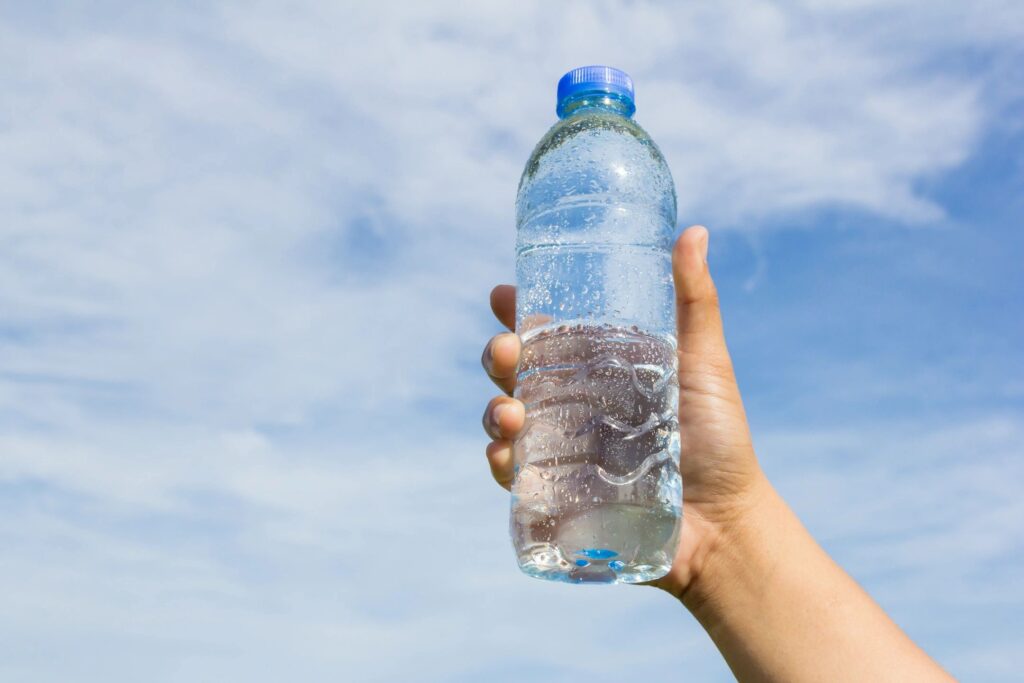Muscle recovery stands as a cornerstone in any effective fitness routine, directly influencing progress and overall health. After intense workouts, muscles undergo stress and micro-damage, initiating the recovery process which is essential for strength and muscle growth. Nutrition emerges as a pivotal element in this equation, offering the building blocks required for repairing and building muscle tissue. Consuming the right foods not only accelerates this recovery phase but also enhances the body’s ability to perform better in subsequent workouts.
This article delves into the best foods for muscle recovery, focusing on those that provide the optimal mix of nutrients to support muscle repair, reduce inflammation, and fuel growth. Understanding the synergy between diet and muscle recovery can significantly improve fitness outcomes, making informed nutritional choices a game-changer for athletes and fitness enthusiasts alike.
How muscle recovery works
Muscle recovery kicks into gear immediately after a workout, a crucial period when the body repairs and strengthens muscle fibers. During exercise, muscles experience stress, leading to microscopic tears. This process triggers the body to initiate repair, a mechanism that ultimately enhances muscle strength and size. Key to this recovery is protein synthesis, where the body uses protein to rebuild damaged muscle fibers.
Adequate nutrition, particularly protein intake, fuels this repair process. Simultaneously, the body replenishes its glycogen stores, the primary energy source during workouts, through carbohydrate consumption. Additionally, rest plays a pivotal role; it’s during downtime that muscles undergo the most significant repair and growth. Managing inflammation and ensuring proper hydration are also essential, as they support the overall recovery process.
Understanding how these elements interplay provides insight into optimizing muscle recovery, ensuring readiness for future training sessions, and minimizing the risk of injuries.
Key nutrients for muscle recovery
Muscle recovery hinges on a balanced intake of essential nutrients. Each plays a unique role in repairing tissue, replenishing energy stores, and reducing inflammation, thereby enhancing overall recovery and performance.
- Protein stands paramount for muscle repair. It provides amino acids, the building blocks for muscle tissue. Distinguishing between complete proteins, which contain all essential amino acids, and incomplete proteins, lacking one or more of these amino acids, is crucial. After a workout, consuming adequate protein—about 20 to 40 grams, depending on body weight and workout intensity—supports efficient muscle repair and growth.
- Carbs are essential for refilling muscle glycogen stores that deplete during exercise. This replenishment is vital for recovery and preparation for future workouts. The amount needed varies with the intensity and duration of the exercise, aiming to consume a good balance of carbohydrates post-workout aids in optimizing recovery.
- Healthy fats play a significant role in reducing inflammation and aiding in the recovery process. Incorporating sources of omega-3 fatty acids, found in fish, nuts, and seeds, can help manage inflammation and support muscle repair.
- Certain vitamins and minerals, such as Vitamin C, D, magnesium, and zinc, are critical for muscle recovery. Vitamin C aids in collagen formation, Vitamin D supports muscle function, magnesium plays a role in muscle relaxation, and zinc helps in tissue repair and growth. Ensuring a diet rich in these nutrients can facilitate a smoother recovery process.
- Hydration and electrolyte balance are foundational for effective muscle recovery. Water supports every metabolic function and nutrient transfer in the body, while electrolytes lost through sweat, such as sodium, potassium, and chloride, must be replenished to maintain fluid balance and prevent cramping and fatigue.
Best Foods for Muscle Recovery
When it comes to optimizing the muscle recovery process, certain foods stand out for their nutrient-rich profiles, directly supporting the repair, growth, and replenishment of muscle tissue. Here are 15 of the best foods to incorporate into your diet for enhanced muscle recovery:
- Chicken Breast – Packs a high-protein punch, essential for muscle repair.
- Salmon – Offers omega-3 fatty acids, reducing inflammation and supporting muscle health.
- Eggs – Provide complete protein along with vitamin D, crucial for muscle recovery.
- Greek Yogurt – Delivers a combination of protein and carbohydrates, ideal for post-workout recovery.
- Quinoa – A complete protein and a great source of carbohydrates and fiber.
- Sweet Potatoes – Rich in carbohydrates and beta-carotene, aiding in glycogen replenishment.
- Spinach – Offers magnesium, which aids in muscle relaxation and recovery.
- Almonds – High in vitamin E, which can help protect against free radical damage after heavy workouts.
- Cottage Cheese – Contains casein protein, providing slow-digesting protein for muscle repair.
- Watermelon – Hydrates and supplies l-citrulline, an amino acid that reduces muscle soreness.
- Beetroot – Enhances blood flow to muscles, improving recovery and reducing soreness.
- Avocado – Loaded with healthy fats and fiber, supporting overall muscle health and recovery.
- Brown Rice – Provides sustained energy release, helping to replenish muscle glycogen stores.
- Chia Seeds – Rich in omega-3s, antioxidants, and fiber, aiding in inflammation reduction and hydration.
- Turmeric – Contains curcumin, known for its anti-inflammatory properties, helping to ease muscle soreness.
Incorporating these foods into your diet can significantly impact your recovery times, muscle health, and overall performance, making them invaluable components of any fitness enthusiast’s diet.
Timing your recovery meals
Optimal muscle recovery involves precise timing in your nutritional intake. The concept of the anabolic window highlights the importance of consuming protein and carbohydrates within 45 minutes to an hour after your workout to maximize muscle repair and glycogen replenishment. Pre-workout, aim for a balanced meal of carbs and protein about 2-3 hours before exercising to fuel your session. Post-workout, focus on a mix of high-quality protein and carbohydrates to aid in recovery and prepare your muscles for the next challenge. This strategy ensures your muscles receive the necessary nutrients at the times they are most receptive, enhancing overall recovery and growth.
Supplements for muscle recovery
Supplements like BCAAs (Branched-Chain Amino Acids), creatine, and whey protein have become staples in the fitness world for enhancing muscle recovery. BCAAs help reduce muscle fatigue and accelerate recovery by increasing protein synthesis. Creatine boosts performance by helping to regenerate the body’s ATP (energy) supply, crucial during high-intensity workouts. Whey protein, rich in essential amino acids, supports muscle repair and growth post-exercise. While natural foods can provide these nutrients, supplements offer a convenient, concentrated source that can be especially beneficial when your diet falls short or your training demands exceed usual nutritional needs. Incorporating these supplements, under proper guidance, can complement your diet, ensuring your muscles have the necessary tools for recovery and growth.
____________________________
In conclusion, optimizing muscle recovery is pivotal for anyone engaged in regular fitness routines, involving a combination of precise nutrition, timing, and supplementation. High-quality proteins, carbohydrates, healthy fats, along with essential vitamins and minerals, form the foundation of effective recovery meals. Timing these nutrients, especially within the anabolic window, is crucial for maximizing muscle repair and growth. Supplements like BCAAs, creatine, and whey protein can further enhance recovery, particularly when dietary intake might not meet the demands of intense training. By incorporating these strategies, individuals can significantly improve their recovery process, ensuring they are ready and at their best for the next workout session.
Further reading on muscle recovery
For readers interested in exploring the science and strategies behind muscle recovery, nutrition, and supplementation in greater depth, the following list of studies, articles, and books provides a comprehensive starting point:
Articles
- “Nutrition and Muscle Protein Synthesis: A Descriptive Review” in the *Journal of the International Society of Sports Nutrition* – Offers insights into how nutrition influences protein synthesis in muscles.
- “The Role of Milk – and Soy-Based Protein in Support of Muscle Protein Synthesis and Muscle Protein Accretion in Young and Elderly Persons” – Discusses the differences between plant and animal proteins in muscle recovery.
Books
- “Nutrient Timing: The Future of Sports Nutrition” by John Ivy and Robert Portman – A groundbreaking book that details how timing your nutrient intake can improve fitness outcomes.
- “Sports Nutrition for Endurance Athletes” by Monique Ryan – Provides detailed nutrition strategies for endurance athletes, focusing on recovery and performance.
- “The Protein Book: A Complete Guide for the Athlete and Coach” by Lyle McDonald – This book offers an in-depth look at protein’s role in diet, specifically for athletes and coaches.
These resources delve into the nuanced interplay between diet, supplements, and exercise, offering readers a detailed understanding of how to optimize muscle recovery for better performance and health.






